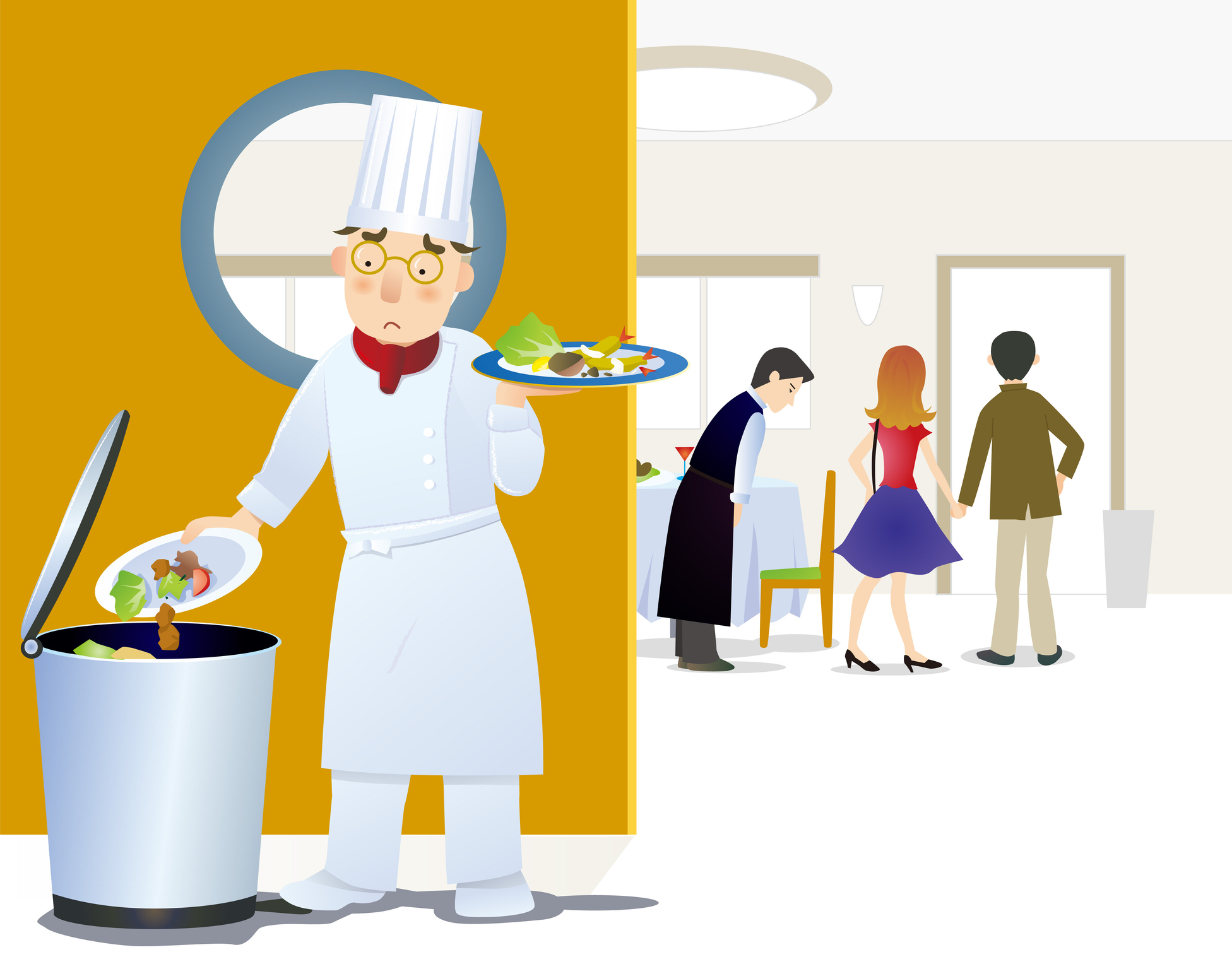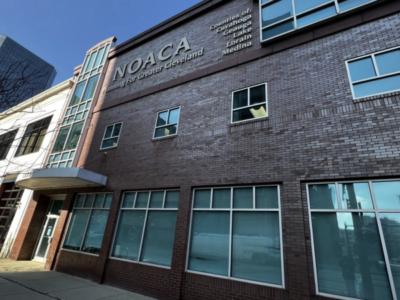
By Nina Ignaczak, Planet Detroit
This story is part of a collaborative series from the Institute for Nonprofit News, Planet Detroit, Tostada Magazine, Energy News Network, The Land, and Borderless Magazine examining climate resilience across the Great Lakes. This reporting was made possible with support from the Joyce Foundation.
When it comes to wasting food, America is among the world leaders. According to a 2021 report by the United Nations, Americans waste more than 45 billion tons of food – more than 138 tons – every year.
Americans waste approximately 30-40 % of our food supply, according to the United States Department of Agriculture. And our food waste per capita is higher than the world’s top two food wasters– China at 125 and India at 93 tons per person per year.
And most of that wasted food ends up in a landfill, which has implications for climate change.
“There is a direct link between landfilled food and a hotter planet,” Danielle Todd, founder and executive director of the local nonprofit advocacy group Make Food Not Waste, said. “Decomposing food in landfills releases methane, a powerful gas that traps heat in the atmosphere. And because we throw away so much food into the garbage, we’re essentially constantly pumping methane into the atmosphere.”
The United States Environmental Protection Agency estimated that each year, food waste in the United States produces 170 million metric tons of carbon dioxide equivalent – about the same as the annual CO2 emissions of 42 coal-fired power plants. Research organization Project Drawdown considers food waste reduction as a top solution to climate change.
One of the worst culprits is the restaurant and hospitality sector, which accounts for about 40% of all food waste at a cost of $376 billion.
“A lot of that comes from the consumer side, what’s called plate waste,” Todd said, “That can come from eaters not finishing everything on their plates, from buffets, or catering. But it can also come from the kitchen if the staff isn’t careful in ordering the right amount, storing food properly, or overproducing.”
To address this issue, Todd’s organization launched a program earlier this year designed to encourage local restaurants and hospitality businesses to take concrete steps towards reducing their food waste. So far, 30 Detroit restaurants have signed on to The PLEDGE which aims to help them pinpoint and eliminate sources of food waste within their day-to-day operations.
Some of the project’s greatest successes so far have involved french fries.
“We’ve heard from a few restaurants that the servers or dishwashers have flagged certain foods that consistently come back without being completely eaten – like french fries,” she said. “Now that they’re looking for it, it helps them make portion size changes.”
But it’s not all as easy as that. Todd notes that making changes requires thought – and the staff to have those great ideas.
“The greatest challenge is having the mental space to change habits, especially during staff shortages. It’s hard for the restaurant industry right now and lots of businesses are working overtime to stay open. It can be hard to take the time to put new processes in place.”
There are easy options any restaurant or food service operation can take. Todd advises getting set up with a food rescue partner like Food Rescue US Detroit or Metro Food Rescue.
“They’ll come pick up any size donation you have and get it to people who can use it,” she said. “The next easiest thing to do is contract with a compost service.” Local composting services include Midtown Compost and My Green Michigan.
Darraugh Collins founded Food Rescue US Detroit in 2019 as a local chapter of the national app-based food rescue organization Food Rescue US. Since launch, Collins said the organization, which relies on volunteer drivers to pick up items from local grocery stores and restaurants and deliver them to social service organizations and food pantries, has kept 8 million pounds of food from the landfill. So far in 2022, volunteers have completed over 4,000 rescues.
“Donating wholesome unused food and signing up for commercial composting service are the easiest ways to start reducing food waste. Every business has an option here in Metro Detroit,” Collins said. “Changing long-standing behaviors is often the hardest, but source reduction is the most important thing we can do for long-term climate change reduction. There are many tools available now to help better manage efficiencies in these industries, we need to demand that it happens.”
The best thing you can do is “have eyes on the food you are tossing,” Todd said. “Weigh it and write down why it went to waste – did it spoil? did it come from prep? did you over-portion? Once you know why it happens, you can make changes to prevent it from happening again.”
State and federal agencies are also offering some resources to assist entities in adopting source reduction practices. In Michigan, the Department of Environment, Great Lakes and Energy (EGLE) offers a guide on sustainable food management, and wasting less, or “produce, purchase, and put on your plate only what you need,” stands at the top of the hierarchy.
Todd would like to see Michigan join the handful of states that have banned food from landfills. “That’s the holy grail of food waste reduction because it ensures a level playing field and encourages the development of the necessary infrastructure to handle it,” she said.
Until then, she encourages food retailers to see what they can do with the resources they’ve got.
“The best thing about not throwing food away is that it’s not a sacrifice. Sure, it might mean flexing those creativity muscles a little bit but you’ll save a lot of money,” she said. “It’s pretty easy not to throw away food. Buy less. Eat what you buy. Compost the rest.”
This series profiles three restaurants that have signed on to Make Food Not Waste’s PLEDGE, each working to reduce food waste in its unique ways. PizzaPlex is implementing source reduction through careful menu planning and using a company to help with composting. Marrow employs whole animal butchery to waste as little animal product as possible. And Avalon International Breads is pioneering an upcycled grain project by creating new products from spent brewer’s barley.
Read on to learn more about these three tasty and local efforts to feed our community sustainably.
Catch more news at Great Lakes Now:
Great Lakes Moment: Detroit’s benefits of a national urban park in Windsor
Detroit and Toronto among Time Magazine’s “50 Greatest Places”
Featured image: Restaurant chef disposing of leftover food. (Graphic courtesy of Institute for Nonprofit News)




